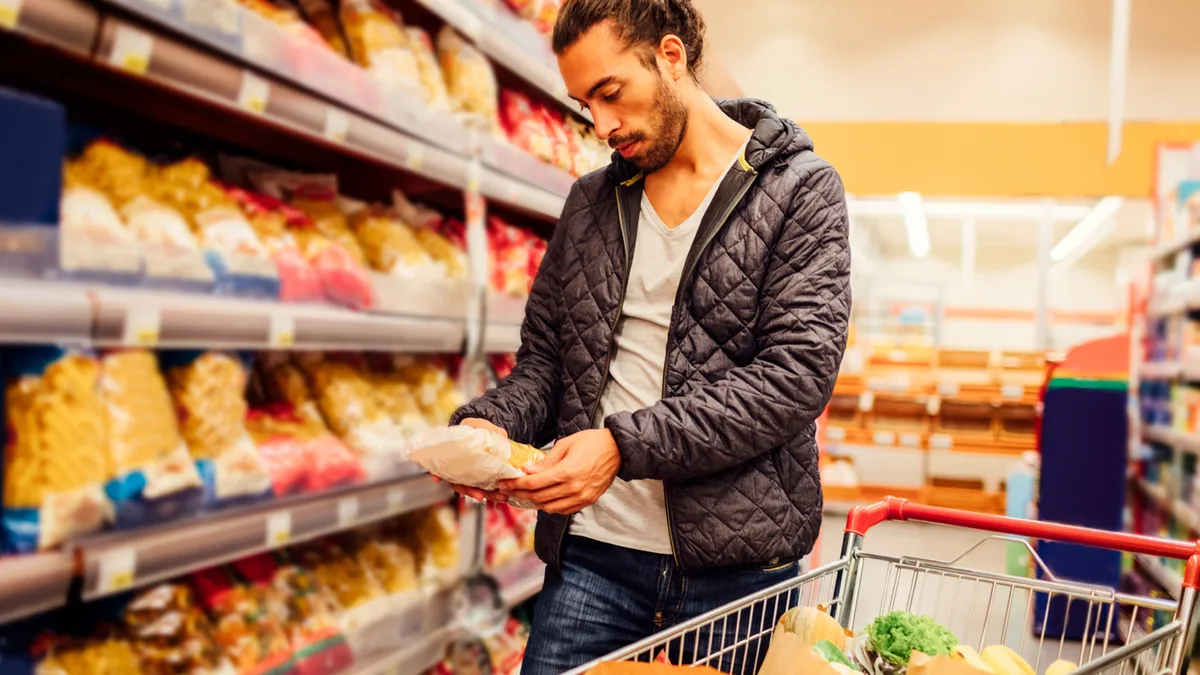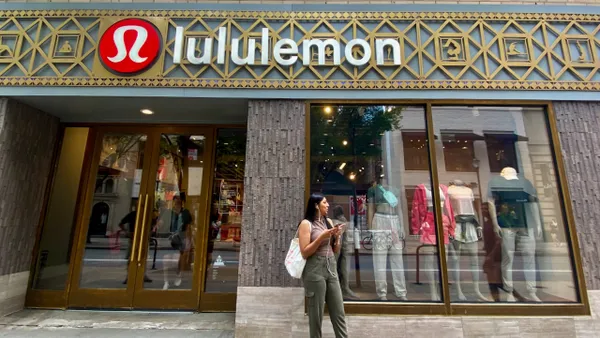Dive Brief:
- American consumers are reducing their total spending, with 55% cutting spending by 10%-20%, 25% cutting by 30%-40% and 20% cutting spending in half, per the results of new survey of more than 1,000 consumers by Survata that was shared on the company's blog.
- Despite cutbacks, surveyed consumers said they preferred to spend on name brand products across many categories as opposed to private labels. For instance, 61% said they choose name brand cleaning products, 58% prefer name brand packaged foods, 57% favor name brand frozen foods and 54% say the same for name brand soda and coffee.
- The preference for brands was less clear or non-existent in other categories, with half of consumers preferring non-generic medications and 51% for name brand personal care products. Only 28% of consumers said they had a preference in the makeup/skincare category, only 29% care about a brand of wine/beer and 27% care about a liquor brand.
Dive Insight:
Survata's findings suggest that brands that invested in brand equity before the pandemic hit could be better positioned to the weather the economic downturn. The U.S. GDP shrunk 4.8% in Q1 due to the coronavirus and the economy is likely to continue to struggle in the months ahead, making it no surprise that consumers are cutting back on their spending. However, it is noteworthy that people still want to purchase name brands, as consumers usually care less about brand names during downturns, according to Survata.
"It's extremely notable that, despite the expected concern over spending during this pandemic, consumers are considering factors other than just price when buying CPG products," Chris Kelly, Survata founder and CEO, said in a statement. "COVID-19 and its fallout not only injects uncertainty over household budgets, but also over a brand's perceived quality, efficacy and supply chain."
Trust is one possible reason for the preference for brand names during the pandemic, with 40% of consumers surveyed by Survata pointing to trust in a brand as the biggest influencing factor driving purchasing decisions. The health crisis is impacting shopping behavior in other ways, with 72% of those surveyed saying they are much more aware of product availability due to pandemic shopping, which caused shortages. In addition, 64% of consumers said perceived product availability is a big influence on their purchases. Consumers are also three times as likely to be researching products compared to before the pandemic.
The findings offer some good news for brand marketers in categories like personal care, medications, cleaning supplies, snacks, beverages and frozen foods, as consumers still want to purchase their favorite brands. Survata's findings echo what some major CPG marketers have been saying about their Q1 sales. This week, PepsiCo said it sees opportunities in snacks, Quaker oats and e-commerce as consumers spend more time at home, even as overall sales take a hit because convenience stores and restaurants are closed.
For some categories, the news is not as good. For example, consumers appear to care less about their brand of beer, so pricey craft beers could take a back seat to lower priced options. This presents an opportunity to lower cost beers such as Coors Lights, Busch Beer and Natural Light. However, any boost to big brands from shoppers may not outweigh the loss of on-site sales as a result of closed restaurants and bars during coronavirus-related shutdowns. This week, Molson Coors reported that the hit to its revenue from closed bars is one of the reasons behind its decision to slash marketing budgets.














